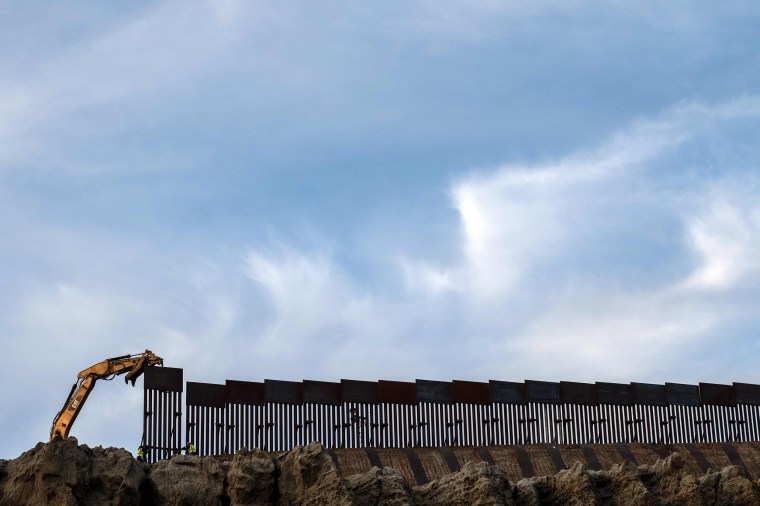Pundits might be bitterly divided, but investment analysts are of a unified opinion: President Donald Trump will not get his wall.
Early in the Trump presidency, when there was speculation that construction of a southern border wall might be imminent, some companies in construction and building trades saw their stock prices get a boost as investors considered the possibility of a surge in demand for heavy equipment, concrete, steel and other building materials.
“My judgement would be that the market came to the conclusion some time ago that the likelihood of the wall being built out significantly further was vanishingly small,” said Nicholas Lardy, a senior fellow at Peterson Institute for International Economics.
Analysts who cover companies within the construction and engineering industry — from equipment manufacturers like Caterpillar and John Deere to steel and concrete producers like U.S. Concrete, Vulcan Materials Company, Martin Marietta Materials, U.S. Steel and Nucor Corporation — concur, saying there is little evidence that investors consider a southern border wall a serious possibility.
“I don’t believe investors are playing these stocks on whether or not a wall gets built,” said Brent Thielman, managing director and senior research analyst at D.A. Davidson & Co.
“We haven’t seen any higher level investor questions on demand created by this project,” said Rob Wertheimer, founding partner, director of research and lead research analyst for the global machinery sector at Melius Research.
Conversely, early Wall Street optimism that Trump’s presidency would ultimately lead to either a wall or sweeping infrastructure investments has waned. “The group shot up in 2016 before and after the presidential election, but … those new investors who initially bought in have returned to the sidelines,” said Garik Shmois, vice president and senior research analyst at Longbow Research. “My sense is that investors have grown fatigued.”
Comparing earnings from the first quarter of 2017 with per-share average estimates for the current quarter from FactSet shows a mixed bag for the industry: Steel producers U.S. Steel and Nucor Corporations have seen their fortunes improve, although economists say that is largely due to the Trump administration’s tariffs on foreign steel, while earnings of concrete and equipment manufacturers have fluctuated, with some up and some down over that same time period.
But if the southern border wall is unlikely to become a reality, the federal government shutdown it has prompted is a growing threat to the sector.
Uncertainty about how long the stalemate will persist has created a kind of holding pattern that is bad news for companies whose operations cater to planners of big civil engineering projects. “The government shutdown is likely having some impact on these stocks,” Thielman said. “Some state agencies are delaying bidding certain transportation projects due to uncertainty around when and what the federal appropriations they typically rely upon will be.”
And the industry certainly is not immune from the broader worry about the ripple effects a long-term shutdown would have on nearly every facet of the U.S. economy.
“It’s becoming a problem for the market because of the consequences of a government shutdown that is going to subtract economic activity to a certain degree,” said Peter Cardillo, chief market economist at Spartan Capital Securities. “The market is worried about it because we’re going above and beyond the time frame that will begin to have a negative economic impact.”
